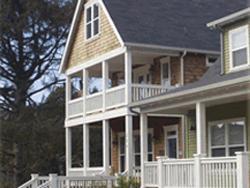Current Surge in Housing Demand Driven by Echo Boomers
Lakewood, WA, June 3, 2021-The Echo Boom generation, children of peak year Baby Boomers, may be driving the current surge in demand for starter homes, says McClellan Financial Publications.
“The peak year of the ‘Baby Boom’ in terms of births was 1960, and interestingly all of those peak baby boomers seem to have decided to have their own babies years later, resulting in an ‘Echo Boom,’ which crested in 1990.
“That is relevant to the discussion of the current housing boom now because of an interesting observation courtesy of the folks at Zillow. They assert that the average age of a first time home buyer is 33 years old. That sort of makes sense, because a person fresh out of college is not thinking about buying a house right away. There is student debt to pay off, and a low starting salary at the first job. As one rises in the ranks, and picks up appendages like a spouse and kids, our thoughts naturally turn to having more space, especially our own space, and maybe a decent home office in 2021. And that phenomenon apparently reaches maturity at around age 33, according to Zillow.
“Those Echo Boomers who were born in 1988-92 are now 29-33 years old, just now arriving at that sweet spot of initial home buying interest in a big wave together. So no wonder there is a big squeeze on ‘starter homes,’ as the bulge of Echo Boomers are all competing with each other for the available supply.
“This is a squeeze that is likely to fizzle out in a few years on its own. There was a big trough in the birth rate starting after that 1990 peak. So that means the big rush to buy starter homes is going to naturally start to fall off, just due to the demographic push and pull.
“This post-1990 births trough matches one that followed the end of the Baby Boom in 1964. This only makes sense. The babies born in smaller numbers from 1965 to 1979 eventually grew up and had fewer babies per year themselves. That drop off in births after the Baby Boom was a small part of the collapse of the real estate market in the late 2000s…”
